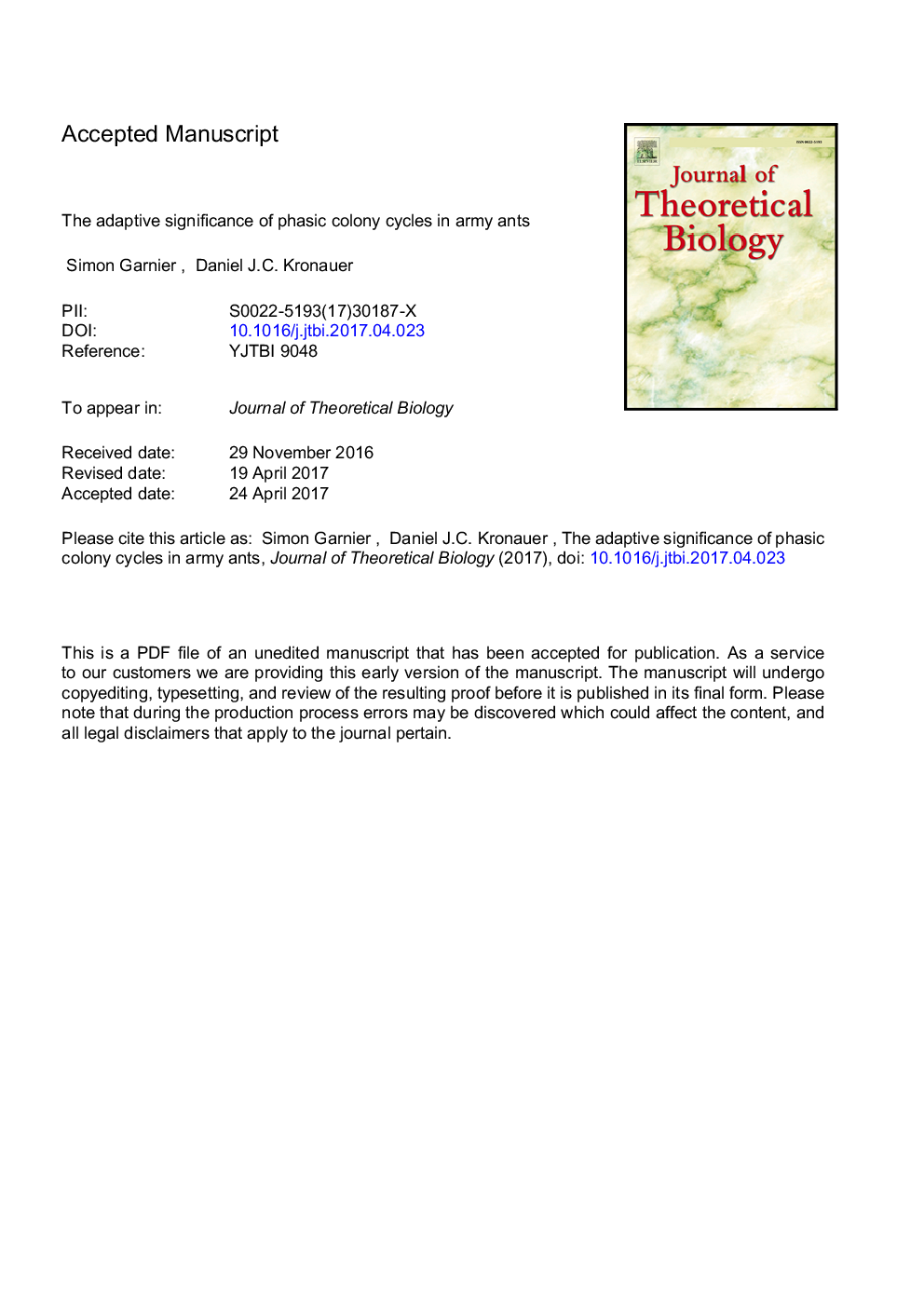| کد مقاله | کد نشریه | سال انتشار | مقاله انگلیسی | نسخه تمام متن |
|---|---|---|---|---|
| 5760001 | 1623782 | 2017 | 19 صفحه PDF | دانلود رایگان |
عنوان انگلیسی مقاله ISI
The adaptive significance of phasic colony cycles in army ants
ترجمه فارسی عنوان
اهمیت تطبیقی دوره های کلنی فازی در مورچه های ارتش
دانلود مقاله + سفارش ترجمه
دانلود مقاله ISI انگلیسی
رایگان برای ایرانیان
کلمات کلیدی
موضوعات مرتبط
علوم زیستی و بیوفناوری
علوم کشاورزی و بیولوژیک
علوم کشاورزی و بیولوژیک (عمومی)
چکیده انگلیسی
Army ants are top arthropod predators in tropical forests around the world. The colonies of many army ant species undergo stereotypical behavioral and reproductive cycles, alternating between brood care and reproductive phases. In the brood care phase, colonies contain a cohort of larvae that are synchronized in their development and have to be fed. In the reproductive phase larvae are absent and oviposition takes place. Despite these colony cycles being a striking feature of army ant biology, their adaptive significance is unclear. Here we use a modeling approach to show that cyclic reproduction is favored under conditions where per capita foraging costs decrease with the number of larvae in a colony (“High Cost of Entry” scenario), while continuous reproduction is favored under conditions where per capita foraging costs increase with the number of larvae (“Resource Exhaustion” scenario). We argue that the former scenario specifically applies to army ants, because large raiding parties are required to overpower prey colonies. However, once raiding is successful it provides abundant food for a large cohort of larvae. The latter scenario, on the other hand, will apply to non-army ants, because in those species local resource depletion will force workers to forage over larger distances to feed large larval cohorts. Our model provides a quantitative framework for understanding the adaptive value of phasic colony cycles in ants.
ناشر
Database: Elsevier - ScienceDirect (ساینس دایرکت)
Journal: Journal of Theoretical Biology - Volume 428, 7 September 2017, Pages 43-47
Journal: Journal of Theoretical Biology - Volume 428, 7 September 2017, Pages 43-47
نویسندگان
Simon Garnier, Daniel J.C. Kronauer,
